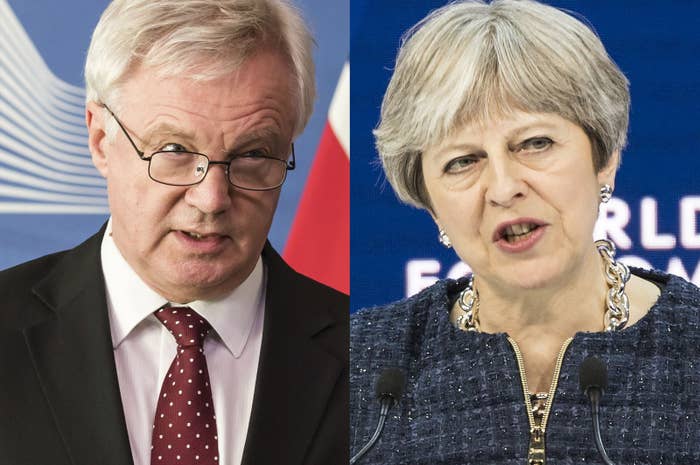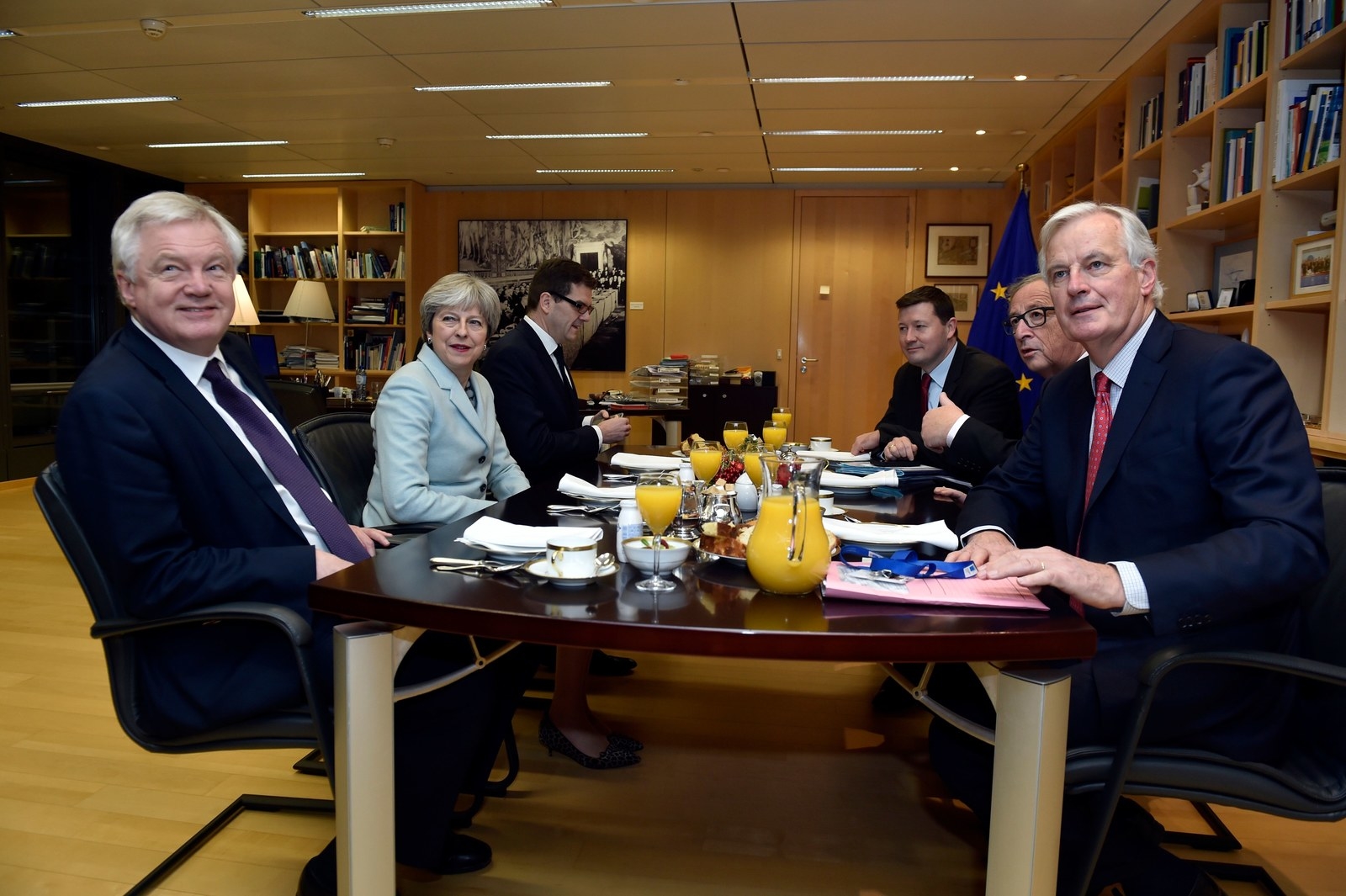
The government's new analysis of the impact of Brexit says the UK would be worse off outside the European Union under every scenario modelled, BuzzFeed News can reveal.
The assessment, which is titled “EU Exit Analysis – Cross Whitehall Briefing” and dated January 2018, looked at three of the most plausible Brexit scenarios based on existing EU arrangements.
Under a comprehensive free trade agreement with the EU, UK growth would be 5% lower over the next 15 years compared to current forecasts, according to the analysis.
The "no deal" scenario, which would see the UK revert to World Trade Organization (WTO) rules, would reduce growth by 8% over that period. The softest Brexit option of continued single-market access through membership of the European Economic Area would, in the longer term, still lower growth by 2%.
These calculations do not take into account any short-term hits to the economy from Brexit, such as the cost of adjusting the economy to new customs arrangements.

The assessment seen by BuzzFeed News is being kept tightly guarded inside government. It was prepared by officials across Whitehall for the Department for Exiting the European Union (DExEU) and is reportedly being presented to key ministers in one-to-one meetings this week ahead of discussion at the Brexit cabinet subcommittee next week.
Asked why the prime minister was not making the analysis public, a DExEU source told BuzzFeed News: "Because it's embarrassing."
Even though the analysis assumes that the UK will agree a trade deal with the US, roll over dozens of the EU’s current trade agreements, and consider loosening regulations after Brexit, there is no scenario that does not leave the country worse off.
Officials believe the methodology for the new assessment is better than that used for similar analyses before the referendum.
The January 2018 analysis looked only at existing EU arrangements, which means bespoke arrangements have yet to be modelled. Prime Minister Theresa May has repeatedly said she is seeking a "deep and special partnership with the EU".
The other main findings of the analysis:
• Almost every sector of the economy included in the analysis would be negatively impacted in all three scenarios, with chemicals, clothing, manufacturing, food and drink, and cars and retail the hardest hit. The analysis found that only the agriculture sector under the WTO scenario would not be adversely affected.
• Every UK region would also be affected negatively in all the modelled scenarios, with the North East, the West Midlands, and Northern Ireland (before even considering the possibility of a hard border) facing the biggest falls in economic performance.
• There is a risk that London’s status as a financial centre could be severely eroded, with the possibilities available under an FTA not much different to those in the WTO option.
• On the plus side, the analysis assumes in all scenarios that a trade deal with the US will be concluded, and that it would benefit GDP by about 0.2% in the long term. Trade deals with other non-EU countries and blocs, such as China, India, Australia, the Gulf countries, and the nations of Southeast Asia would add, in total, a further 0.1% to 0.4% to GDP over the long term.

The government has found itself in repeated difficulty over the existence – or lack – of Brexit impact studies. Last year, the Brexit secretary David Davis suggested that dozens had been carried out “in excruciating detail”, but after a Commons vote forced the publication of these assessments, he told MPs he had been misunderstood and they did not exist after all. DExEU published a series of broad "sectoral analyses" instead.
The biggest negative impact comes from the UK’s decision to leave both the EU’s customs union and the single market – the issue at the heart of the Conservative Party’s ongoing internal strife over Brexit.
Leaving these arrangements creates what the analysis calls “non-tariff barriers” to trade, such as loss of market access in certain sectors and new customs and border checks and practices.
Some of these can be minimised if Britain were to remain in the single market via the EEA, and the impact can also be partly offset through domestic policy or trade deals with the US and others, but the losses cannot be eliminated altogether once the UK is outside the customs union.
This new analysis suggests that there could be opportunity for the UK in agreeing trade deals with non-EU countries and deregulating in areas such as the environment, product standards, and employment law.
However, the analysis also casts doubt on the idea that these benefits would be enough to mitigate the losses to the economy caused by leaving the single market and customs union. Moving away from the existing set of rules and standards would also make it harder to trade with the EU in the future, and would be politically controversial domestically.
This specific debate risks deepening the conflict inside the Tory party between those, such as chancellor Philip Hammond, who want to remain more closely aligned to the EU for years, and the hardline Brexiteers, led by backbencher Jacob Rees-Mogg.
A government spokesperson told BuzzFeed News: “We have already set out that the government is undertaking a wide range of ongoing analysis in support of our EU exit negotiations and preparations.
"We have been clear that we are not prepared to provide a running commentary on any aspect of this ongoing internal work and that ministers have a duty not to publish anything that could risk exposing our negotiation position.”
A government source said: “As part of its preparations for leaving the European Union, officials from across Whitehall are undertaking a wide range of ongoing analysis.
"An early draft of this next stage of analysis has looked at different off-the-shelf arrangements that currently exist as well as other external estimates. It does not, however, set out or measure the details of our desired outcome – a new deep and special partnership with the EU – or predict the conclusions of the negotiations.
"It also contains a significant number of caveats and is hugely dependent on a wide range of assumptions which demonstrate that significantly more work needs to be carried out to make use of this analysis and draw out conclusions.”
